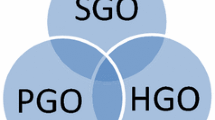Abstract
Despite their recent development, geo-ontologies represent a complicated conundrum for the different experts involved in their design. Computer scientists use ontologies for describing the meaning of data and their semantics in order to make information resources built for humans understandable also for artificial agents. Geographers pursue conceptualizations that describe the (geographical) domain of interest in a way that should be accessible, informative, and complete for their final recipients. In this context, philosophers are not (only) required to sketch the historical (and/or cultured) background of ontology. Rather, they should offer conceptual solutions for carving nature at the joints and choosing how best to categorize and classify the different entities belonging to the geographical domain in question. Accordingly, the aim of this paper is to combine assumptions and requirements coming from these different areas of research in order to show what different (ontological) categories might potentially complete the current domain of geo-ontologies.
Similar content being viewed by others
Notes
However, Lowe himself also acknowledges that there are aspects of common sense that need to be revised or abandoned.
See for example Smith 1997.
References
Bishr, Y. A., & Kuhn, W. (2000). Ontology-based modelling of geospatial information. In A. Ostman, M. Gould, & T. Sarjakoski (Eds.), 24–27. Proceedings of the 3rd AGILE Conference on Geographic Information Science, Helsinki.
Borst, W. N. (1997). Construction of engineering ontologies, centre for telematica and information technology. Enschede: University of Twente.
Buccella, A., Perez, L., & Cechich, A. (2008). GeoMergeP: Supporting an ontological approach to geographic information integration. In International Conference of the chilean computer science society. http://disi.unitn.it/*p2p/RelatedWork/Matching/bucc-perbel-cech08p.pdf
Cumpa, J. (2014). A materialist criterion of fundamentality. American Philosophical Quarterly, 51(4), 319–324.
Dummett, M. (1981). Frege: philosophy of language. London: Duckworth.
Egenhofer, M., & Mark, D. M. (1995). Naive geography. In A. U. Frank & W. Kuhn (Eds.), Spatial information theory: a theoretical basis for GIS. Proceedings of the second international conference (pp. 1–15). Berlin: Springer.
Frege, G. (1884). Die Grundlagen der Arithmetik: Eine logisch-mathematische Untersuchung über den Begriff der Zahl. Breslau: Koebner.
Geus, K., & Thiering, M. (2014). Common sense geography and mental modelling: Setting the stage. In K. Geus & M. Thiering (Eds.), Features of common sense geography. Implicit knowledge structures in ancient geographical texts. Wien: LIT.
Goy, A., & Magro, D. (2015). What are ontologies useful for? In Encyclopedia of information science and technology (pp. 7456–7464). IGI Global.
Grossmann, R. (1983). The categorial structure of the world. Bloomington: Indiana University Press.
Gruber, T. R. (1993). A translation approach to portable ontology specifications. Knowledge Acquisition, 5(2), 199–220.
Guarino, N., & Giaretta, P. (1995). Ontologies and knowledge bases—towards a terminological clarification. In N. J. Mars (Ed.), Towards very large knowledge bases—knowledge building and knowledge sharing (pp. 25–32). Amsterdam: IOS Press.
Hartmann, N. (1949). Der Aufbau der realen Welt: Grundriß der allgemeinen Kategorienlehre. Meisenheim: Anton Hain.
Hoffman, J. & Rosenkrantz, G. S. (1994). Substance among other categories. Cambridge: Cambridge University Press.
Jaziri, W., & Gargouri, F. (2010). Ontology theory, management and design: an overview and future directions. In F. Gargouri & W. Jaziri (Eds.), Ontology theory, management and design: advanced tools and models. Hershey: Information Science Reference.
Kuhn, W. (2001). Ontologies in support of activities in geographical space. International Journal of Geographical Information Science, 15(7), 613–631.
Laurini, R. (2017). Geographic knowledge infrastructure: applications to territorial intelligence and smart cities. London: ISTE-Elsevier.
Lord, P. (2010). Components of an ontology. http://ontogenesis.knowledge blog.org/514.
Lowe, E. J. (2006). The four-category ontology: a metaphysical foundation for natural science. Oxford: Clarendon Press.
Norton, B. G. (1976). On defining ‘ontology’. Metaphilosophy, 7, 102–115.
Noy, N. F., & McGuinness, D. L. (2003). Ontology development 101: a guide to creating your first ontology. Stanford: Stanford University.
Pâslaru-Bontaş, E. (2007). A contextual approach to ontology reuse. Methodology, methods and tools for the semantic web. Ph.D. Thesis, Department of Mathematics and Computer Science, Freien Universitat, Berlin.
Ryle, G. (1938). Categories. Proceedings of the Aristotelian Society, 38, 189–206.
Ryle, G. (1949). The concept of mind. London: Hutchinson’s University Library.
Smith, B. (1997). On substance, accidents and universals: in defence of a constituent ontology. Philosophical Papers, 27, 105–127.
Smith, B., & Mark, D. M. (2001). Geographical categories: an ontological investigation. International Journal of Geographical Information Science, 15(7), 591–612.
Sommers, F. (1959). The ordinary language tree. Mind, 160, 160–185.
Sommers, F. (1963). Types and ontology. Philosophical Review, 72, 327–363.
Sommers, F. (1971). Structural ontology. Philosophia (Israel), 1, 21–42.
Studer, R., Benjamins, V. R., & Fensel, D. (1998). Knowledge engineering: principles and methods. IEEE Transactions on Data and Knowledge Engineering, 25(1–2), 161–197.
Tambassi, T. (2017). The Philosophy of Geo-ontologies. Cham: Springer.
Tambassi, T. (2018). The riddle of reality. In T. Tambassi (Ed.), Studies in the Ontology of E.J. Lowe. Verlag: Editiones Scholasticae.
Tambassi, T., & Magro, D. (2015). Ontologie informatiche della geografia. Una sistematizzazione del dibattito contemporaneo. Rivista di estetica, 58, 191–205.
Westerhoff, J. (2005). Ontological categories. Oxford: Clarendon Press.
Acknowledgements
Parts of this article draw on previous materials. In particular, Sections 1, 3, and 4 have some overlaps with Tambassi (2017) while Section 7 has some overlaps with Tambassi (2018). Thanks are due to Matthew R.X. Dentith and Giulia Lasagni for providing comments and feedback, and for their invaluable support.
Funding
This paper was supported by a fellowship at the Research Institute of the University of Bucharest (ICUB).
Author information
Authors and Affiliations
Corresponding author
Ethics declarations
Conflict of Interest
The authors declare that there is no conflict of interest.
Rights and permissions
About this article
Cite this article
Tambassi, T. What Kind of Ontological Categories for Geo-ontologies?. Acta Anal 34, 135–144 (2019). https://doi.org/10.1007/s12136-018-0370-7
Received:
Accepted:
Published:
Issue Date:
DOI: https://doi.org/10.1007/s12136-018-0370-7




